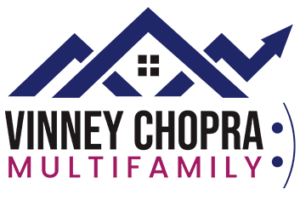Learn how to adeptly handle senior housing compliance challenges with our expert tips and strategies. Curious about the specifics? Read more here – Read More
To navigate senior housing compliance issues, you’ll need a thorough grasp of federal and state regulations like the Fair Housing Act and CMS guidelines. Start by building strong relationships with regulatory bodies for up-to-date information. Prioritize continuous staff training to adhere to resident care, medication management, and safety protocols. Effective documentation is key for proving compliance and identifying improvement areas. Don’t forget to leverage technology to streamline operations and enhance safety. Establish a transparent compliance culture to minimize risks and legal liabilities. Keep exploring to master the complexities and guarantee compliant, quality care in senior housing.
Key Takeaways
Regularly update policies to align with evolving federal and state regulations.
Implement continuous staff training programs to ensure adherence to compliance standards.
Foster a culture of transparency and accountability for reporting and addressing compliance issues.
Utilize technology for efficient compliance management and enhanced safety protocols.
Maintain comprehensive documentation and record-keeping to validate compliance efforts and identify areas for improvement.
Understanding Regulatory Framework
Understanding the regulatory framework for senior housing is fundamental for ensuring compliance and providing safe, quality care for residents. Senior living communities must navigate federal laws like the Fair Housing Act and adhere to regulations from agencies such as the Centers for Medicare & Medicaid Services (CMS). Compliance in senior living involves multiple facets, including resident care, staff qualifications, medication management, safety protocols, and building codes.
State regulations add another layer of complexity. Health departments issue licenses and enforce state-specific rules that senior housing operators must follow. These regulations aim to protect residents by ensuring that facilities maintain high standards in all areas of care and operation. In addition to federal and state regulations, ESG initiatives are increasingly viewed positively and can enhance the reputation and operational efficiencies of senior care facilities.
A thorough approach to compliance is vital. This includes regular training for staff to meet the necessary qualifications, meticulous documentation, and fostering a culture of compliance. Collaborating with legal experts can help you stay updated on changing regulations.
Utilizing industry resources and compliance assistance services can ease the burden. Technology also plays a pivotal role in helping senior housing operators manage compliance requirements effectively. By integrating these tools, you can better navigate the regulatory framework, ensuring the safety and well-being of your residents.
Identifying Compliance Challenges
Navigating the maze of compliance challenges in senior housing can be daunting. Evolving regulations in senior living require constant updates to your policies and procedures, making it essential to stay informed. Staff turnover and resource constraints further complicate this, as maintaining compliance with limited personnel and funds becomes a significant obstacle. Compliance challenges often stem from the need for thorough staff training. Guaranteeing your team is well-versed in the latest regulations is vital to avoid costly mistakes. If staff aren’t properly trained, you risk facing legal liabilities and financial penalties. Furthermore, these issues can tarnish your community’s reputation and compromise resident well-being.
Resource constraints can also impede your ability to allocate sufficient time and funds towards compliance efforts. Paperwork management is another crucial area where lapses can occur. With numerous documents to handle, any oversight can lead to noncompliance, putting your community at risk. Embracing smart home technology can enhance operational efficiency and help manage compliance more effectively.
To navigate these challenges effectively, you need a proactive approach. Regularly review and update your policies and procedures, invest in ongoing staff training, and establish robust systems for paperwork management. By addressing these compliance challenges head-on, you can safeguard the well-being of your residents and uphold your community’s standards.
Establishing a Compliance Culture
Tackling compliance challenges head-on requires more than just updated policies and staff training; it demands fostering a compliance culture within your organization. Establishing this culture involves promoting a mindset where adherence to regulations and best practices becomes second nature. In senior living: compliance isn’t just a box to tick; it’s a core value that impacts daily operations and decision-making processes.
To foster this culture, start by integrating thorough training programs that stress the importance of compliance at all levels. Your policies and procedures should reinforce this focus, ensuring everyone understands their role in maintaining standards. Transparency and accountability are vital; encourage staff to report issues openly and take responsibility for their actions. Additionally, investments in emerging senior living markets can provide a broader context for understanding the benefits of compliance, including boosting local economies and creating jobs.
A strong compliance culture also emphasizes continuous improvement. Regularly review and update your practices to meet evolving regulatory requirements. This proactive approach helps mitigate risks and enhances resident safety, which is paramount in senior housing facilities.
Continuous Staff Training
Continuous staff training is a cornerstone of maintaining compliance in senior housing facilities. To guarantee your team is up-to-date with evolving laws and regulations, you need to prioritize ongoing education for staff members at all levels. This approach helps them stay informed about compliance requirements, which is crucial for addressing potential compliance issues effectively.
Providing specialized training modules that focus on key compliance areas is essential. These modules enhance staff knowledge and guarantee adherence to regulations specific to senior housing. Regular training sessions are crucial; they equip your staff with the necessary skills to maintain compliance consistently.
Investing in staff education and training not only helps in upholding high standards of care but also greatly enhances safety in senior housing environments. When your staff is well-trained, they’re better prepared to handle various situations, ensuring the well-being of residents and minimizing risks.
Documentation and Record-Keeping
Proper documentation and careful record-keeping are essential foundations in demonstrating compliance within senior housing facilities. To guarantee you’re meeting all regulations, you need to maintain accurate records of resident care, staff qualifications, safety protocols, and building maintenance. These records not only keep everything organized but also validate your compliance efforts during audits, inspections, and regulatory reviews.
In senior housing, documenting policies and procedures is vital. It ensures consistency in how compliance practices are implemented across the board. When you have clear, documented guidelines, your staff knows exactly how to maintain high standards of resident care, follow safety protocols, and keep up with building maintenance.
Effective record-keeping also helps you track compliance trends. By analyzing these records, you can identify areas that need improvement and take proactive steps to mitigate any legal risks. Additionally, detailed documentation supports accountability and transparency within your facility, fostering a safe environment for residents and staff alike.
Leveraging Technology Solutions
Embracing technology solutions can revolutionize how senior housing facilities operate and guarantee compliance with regulations. By integrating smart home devices and wearable technology, you can enhance both health and wellbeing for residents. Smart sensors provide real-time monitoring, making sure that safety measures are always up to date and effective.
Cloud-based solutions streamline your auditing processes, making it simpler to adhere to compliance standards. These tools allow for regular, efficient inspections and enable you to identify and address issues promptly. This proactive approach minimizes risks, ensuring that your senior housing facility meets all safety and compliance regulations.
Wearable technology plays an important role in this ecosystem. Devices like health monitors and emergency alert systems ensure that residents receive immediate assistance when needed. This not only boosts their safety but also aligns with regulatory requirements.
Operational efficiency is another significant benefit. Technology fosters better collaboration and communication among staff and residents, making daily operations smoother and more coordinated. The seamless flow of information helps everyone stay informed and compliant with regulations.
Incorporating these technology solutions into your senior housing facility is a smart way to guarantee safety, compliance, and overall operational excellence.
Collaboration With Regulatory Bodies
Establishing strong partnerships with regulatory bodies like CMS and state health departments is important for maintaining compliance in senior housing. By collaborating with these agencies, you guarantee that your senior living facility adheres to specific compliance standards, which is vital for the safety and well-being of residents.
Regular communication with regulatory bodies helps you stay updated on changing regulations and requirements. This proactive approach allows you to implement necessary adjustments before issues arise, guaranteeing continuous compliance. Additionally, engaging with OSHA can lead to improved safety protocols, reinforcing your commitment to a safe living environment.
Building strong relationships with these regulatory bodies can facilitate smoother inspections. When inspectors see that you’ve been actively collaborating and maintaining open dialogue with them, it demonstrates your dedication to compliance and can result in more constructive feedback.
Seeking guidance from regulatory bodies not only helps you address compliance issues effectively but also allows you to anticipate potential challenges. By maintaining open dialogue with CMS and state health departments, you can proactively resolve issues, ensuring your senior living community remains compliant and safe. This collaboration is key to a successful, compliant senior housing operation.
Frequently Asked Questions
How Can Senior Housing Facilities Maintain Resident Privacy While Ensuring Compliance?
To maintain resident privacy while guaranteeing compliance, train your staff on privacy and confidentiality. Use technology solutions to protect data security and follow regulations. Respect resident rights by obtaining consent forms and monitoring activities. Implement communication strategies for enforcement and keep detailed documentation procedures for audits. Uphold legal obligations, encourage resident feedback, and balance resident autonomy with compliance. This approach safeguards privacy and confirms regulatory adherence.
What Are the Best Practices for Involving Family Members in Compliance Processes?
To involve family members in compliance processes, you should prioritize family involvement through clear communication strategies and transparency measures. Implement support systems and provide education resources about legal considerations and decision-making processes. Foster advocacy efforts and trust-building by addressing concerns and using conflict resolution methods. Engaging families in these ways guarantees they feel informed and confident, promoting a safer, compliant environment for senior residents.
How Do Facilities Handle Compliance Issues Related to Resident Dietary Needs?
Facilities manage compliance issues related to resident dietary needs by implementing menu adjustments and allergen management. They provide nutritional counseling to address special diets and guarantee food safety. Resident preferences and dietary restrictions are taken into account during meal planning. Hydration monitoring is vital, and staff training guarantees that everyone understands these protocols. This all-encompassing approach helps maintain health and safety, addressing each resident’s unique nutritional needs.
What Role Do Third-Party Audits Play in Senior Housing Compliance?
Third-party audits play an essential role in ensuring compliance. They help identify gaps through a thorough audit process, increasing risk management effectiveness. Compliance training is vital for staff education, while regular regulatory updates keep policies current. Auditors check documentation requirements, policy development, and incident reporting systems, ensuring robust compliance monitoring. Quality assurance is maintained, providing a safer environment for residents through continuous improvement and adherence to standards.
How Can Facilities Address Compliance Concerns About the Use of Personal Medical Devices?
You can address compliance concerns about personal medical devices by focusing on technology integration and staff training. Guarantee HIPAA compliance through robust data security measures and regular policy updates. Educate residents on device usage and emergency response protocols. Implement effective communication strategies and risk management plans. Partner with reliable vendors to maintain device safety and functionality. Continuous staff education and clear resident communication are key to a secure environment.
Conclusion
Exploring senior housing compliance issues might seem intimidating, but it doesn’t have to be. By contrasting the complexity of regulations with the simplicity of a well-established compliance culture, you can guarantee both legal adherence and resident well-being. Ongoing staff training paired with detailed documentation transforms challenges into manageable tasks. Utilizing technology and working with regulatory bodies further simplifies the process. Your proactive approach bridges the gap between regulatory demands and quality care, creating a harmonious and compliant environment.

